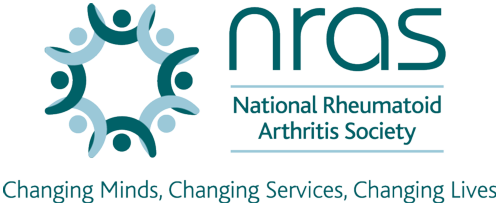 RA disease impact in patients not treated with advanced therapies; survey findings from the National Rheumatoid Arthritis Society
RA disease impact in patients not treated with advanced therapies; survey findings from the National Rheumatoid Arthritis Society
by NRAS
Recently NICE published a Final Appraisal Document in respect of a new JAK inhibitor (filgotinib – Jyseleca) giving access to people with RA who have so called ‘moderate’ disease in addition to those with ‘severe’ disease. This is the first time NICE have broadened their eligibility criteria for access to advanced therapies and is warmly welcomed by NRAS. This comes at the same time as a paper published by the National Rheumatoid Arthritis Society (P. Kiely et al – Rheumatology Advances in Practice – 5/1/21) entitled “RA disease impact in patients not treated with advanced therapies; survey findings from the National Rheumatoid Arthritis Society.”
The paper describes the results of a survey of over 600 people with RA who are not currently receiving an advanced therapy, and demonstrates very clearly that many of these individuals experience profound difficulties in everyday living with RA, across a broad range of measures. The survey included the RA Impact of Disease (RAID) questionnaire and only 12.4% of respondents were currently in a patient acceptable state, as defined by a total RAID score <2. The high impact of so-called “moderately active” RA on everyday life is further emphasised by the finding that in all seven domains >50% respondents recorded scores in the high range, indicating a significant burden in the last week. This is supported by impact on work data from the survey, with 70% of respondents reporting a change in working hours due to their RA. Difficulties with daily physical activities, and worsened physical and emotional well-being were significantly associated with higher pain, greater number of flares and worsened ability to cope. RA flares were extremely common with 90% experiencing at least one flare and nearly a quarter reporting 6 or more flares in the last year. Thus, across all assessed patient reported outcome measures, many RA patients not currently taking advanced therapies experience a related burden of adverse outcomes from their disease.
NRAS has always advocated that access to the most appropriate treatment at the right time to bring RA disease activity under optimal control will greatly reduce the impact and burden of disease on individual lives. This change will also enable many more people living with RA to continue to work and live full, productive lives. Earlier treatment in the disease pathway of those with uncontrolled disease will benefit not only the individual but their families, the economy and the health service leading to potentially less surgical and clinical intervention and ultimately less disability. Most European countries do not have the very high eligibility criteria imposed by NICE in the UK for the last two decades which, by comparison, has disadvantaged people with RA in the UK. This very welcome news regarding filgotinib (Jyseleca) brings us a step closer to alignment with most of the rest of Europe.

